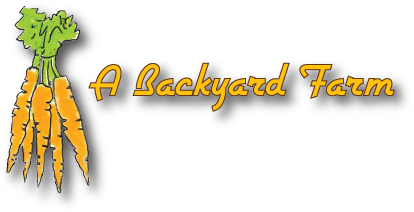Worms 101
Who are the hardest workers in your garden? Worms! Having worms in your garden has many positive outcomes. They eat clay, silt, sand particles, and organic matter. All of this comes out the other end as what is called, "castings". These make the soil structure better by allowing air and moisture to move freely in the soil. Worms also make tunnels going all over the topsoil and to the sub soil but to a lesser extent. Because of this, roots can grow deeper. Plants can get more nutrients. If soil has a lot of worms, water is absorbed four times faster than soil with few worms.
Worms are a great way to judge soil health. If there are many worms, it means there is a lot to eat. Worms prefer soil that is full of organic matter, drains well and airy, and has a pH of around 6.0-7.0. Other microbial life in the soil has similar needs. We can infer then that a healthy worm population indicates soil vitality.
If worms are highly desirable, how do I get them to set up a homestead and get them to enroll their kids in the schools and put down roots? Can I buy some and put them in my garden if I don't have many? This wouldn't be a wise use of resources. Worms want specific conditions, and if those don't exist, they will leave. The key is to create conditions that are desirable for them, and they will come. What do they want? Worms have two objectives in life: eat and make more worms. Worms like to eat organic matter. If this doesn't exist, they won't visit. The pantry is empty! They also prefer a soil temperatures of about 60 degrees Ferenheihht, moist but not soggy soil, and again, mucho organic matter. Finally, a peaceful, undisturbed environment. This is why running a tiller is not advised unless you are starting garden for the first time.
I have mentioned organic matter a lot. The best is finished compost worked into the soil. You can also add SHREDDED fall leaves or grass clippings (from lawns not treated with with herbicide or chemical fertilizers), straw, or fruit and vegetable scraps. It is important to shred your leaves to aid in soil incorporation quickly. A two inch layer of compost is also the best mulch for the garden. Once again, mulch is important to keep the soil cool and to preserve moisture. If worms get too hot, they will go deeper away from where the majority of the roots are. When extreme cold comes rapidly, mulch is important for soil insulation so they are not caught off guard when a cold snap hits and they are trapped, freezing to death. Mulch is also another food source. Our little wrigglers will come up and eat little bits and again incorporate it into the soil.
To sum it all up, worms equal healthier soil. Healthier soil leads to healthier plants. The more healthy your plants are, the more nutrient dense your produce will be. All of this leads to a healthier and happier you.
